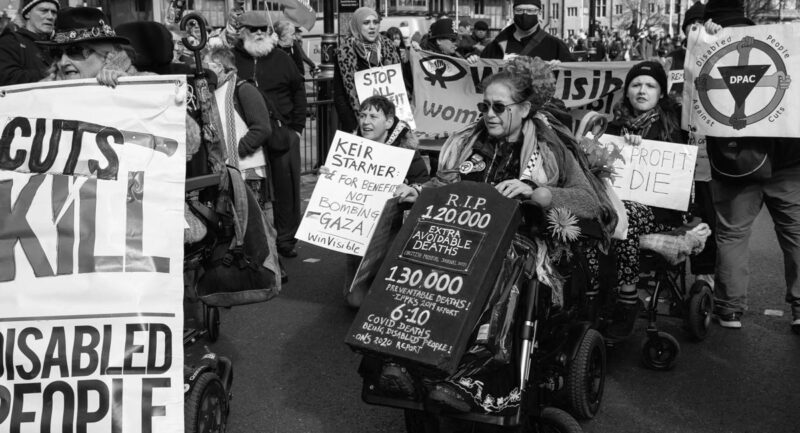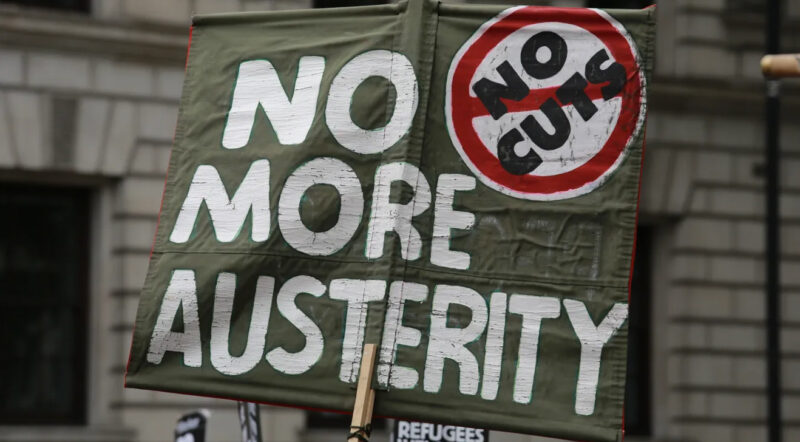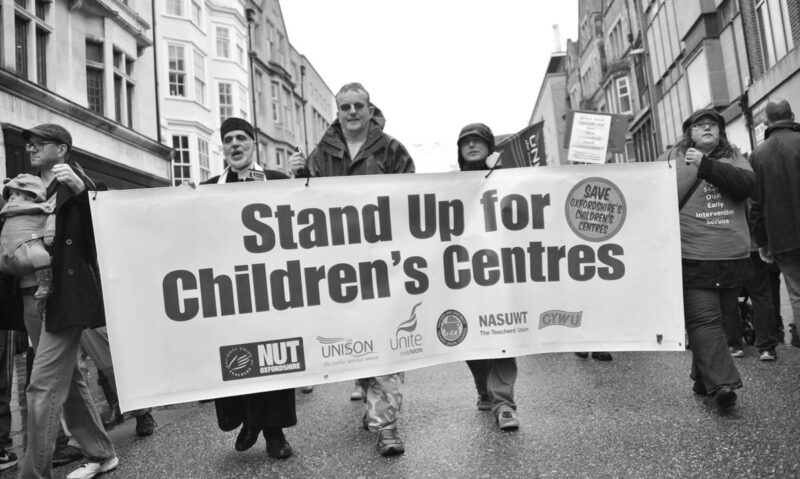Police racism crisis is a chance to fight back
 In the last week, the London Metropolitan Police have become swamped by a series of exposes of police racism dating back to the London riots. The allegations expose the way the whole justice system protects the police and defends racism.
In the last week, the London Metropolitan Police have become swamped by a series of exposes of police racism dating back to the London riots. The allegations expose the way the whole justice system protects the police and defends racism.
On 30 March the Guardian newspaper released a recording made by Mauro Demetrio, a 21 year old black man stopped in his car in Newham by the police during last year’s riots who falsely accused him of driving under the influence of drugs or alcohol. Demetrio was strangled by a policeman, who called him a “cunt” and bragged about strangling the youth. Another, PC Alex MacFarlane, subjected him to racist abuse, saying things like “The problem with you is you will always be a nigger”. The victim, who was innocent, said he couldn’t breathe while being restrained and felt like he was going to die at the time, but the psychological wounds are deep too: “It makes you feel like a piece of shit – it makes you feel not even human.” Six cops in the same van looked on without intervening.
This sort of thing happens all the time. There are two reasons a crisis has broken out this time. First off, Demetrio recorded the exchanges with the policemen on his mobile, reading out the badge number of MacFarlane. Unbelievably, in January the Crown Prosecution Service (CPS) decided no charges should be brought against any of the police officers present! In reality this is nothing new for the CPS, which often lets the police off the hook despite clear evidence.
The drunk driving charge was dropped, but after Demetrio went into Forest Gate police station to complain about his assault and abuse, handing in his phone as proof, he was then arrested on a false charge of attempting to steal an ATM during the riots, by one of the cops from the original van incident! Then the police raided his home, before he was let go and advised later that no further action would be taken – in other words there was no evidence he was involved at all. Demetrio had protested his innocence from the start. It was clearly a campaign to smear his character and intimidate him by the police.
A few days later the Guardian posted a second video where Terelle Ferguson, another black youth, accuses the same PC MacFarlane at the same police station of strangling and kicking him while he was on the floor of a police station, with other police looking on. This came after MacFarlane had done the same two days before in a local park for no reason, under stop and search legislation.
Police chiefs attempt to head off crisis
Now top police bureaucrats, still reeling from the phone-hacking crisis, are scrambling to cover their backs and head off another crisis. The new commissioner of the Met, Bernard Hogan-Howe, appointed after Sir Paul Stephenson resigned due to accepting free spa breaks from Murdoch employees, has been forced to appeal to officers for complaints against others on the force.
Within days twenty policemen and a civilian worker were put under investigation and eight suspended for racist language, racist bullying of community support officers, and other offences. According to the Independent (6 April) one case involves a racist attack against several youth in Hyde Park in 2011 involving five police officers, all still on full duties! Ten cases have been referred to the Independent Police Complaints Commission (IPCC).
Several of these cases were already “investigated” by the Independent Police Complaints Commission, showing how biased and toothless this watchdog is. This is just the tip of an enormous iceberg, as the inadvertent expose of PC MacFarlane shows, along with the ten or so other police who were present and complicit in his two assaults.
A rotten, repressive institution
The last two years have revealed the fundamentally unaccountable, anti-democratic nature of the police to wide layers of society. Thousands of students and other protestors have experienced first-hand the widespread use of unlawful kettling of protests and vicious attacks on demonstrators. The way the media backed up the police and slandered the protestors was a lesson in how the system protects its own.
The phone hacking scandal revealed systematic police corruption at every level, with the Murdoch media empire passing bribes for info to local PCs and inviting detectives to champagne parties and free gifts like luxury spa breaks for top cops – no less than Met Commissioner Sir Paul Stephenson was forced to resign last summer as a result.
This was a new lesson for millions who have had propaganda about the “integrity” of the police and “independence” of the media crammed down our throats for years by politicians, experts – and of course the media and the police spokesmen themselves.
In reality the police are part of that apparatus of coercion and violence that includes the security forces and military which exists to protect the interests of British capitalists. Every protest movement and working class struggle comes up against the “thin blue line”. The students who organised self-defence on their demonstrations to break out of kettles and defend themselves from police horses and batons showed the way to assert our democratic right ot protest and fight the cuts.
Last August’s police murder of Mark Duggan put the police and IPCC under further pressure. His murder by armed police revived an old anger in the poorest multi-racial communities, showing police racism isn’t a thing of the past, but alive and kicking. The riots marked a turning point in ensuring his death didn’t just turn into another forgotten statistic. They exposed the anger created by the day in and day out racism and oppression of the poorest working class youth by the police, reviving a debate about stop and search.
The coverage of the Mark Duggan campaign has also created renewed energy in the many other campaigns against deaths in police custody with protests in Hull by the Christopher Alder campaign and in Bolton around the shooting of the unarmed Anthony Grainger last month.
Time to go on the offensive
Commissioner Hogan-Howe has now been forced to promise that all police vans and cars will have CCTV in them to discourage assaults and abuse like that Demetrio experienced – yet police stations have cameras and still people like Terelle Ferguson get beaten up and even die on video, like Christopher Alder with none of the police perpetrators ever convicted.
The police can’t be allowed to investigate themselves, and neither can the government or the IPCC which is independent in name only. The anti-racist, anti-cuts and trade union movements should mobilise to demand justice for all those assaulted or killed in police custody, repeal the stop and search laws, disarm the police and strip them of their undemocratic, repressive powers such as Section 60 powers to kettle protestors and stop and search black youth.
That a number of campaigns are now linking up to fight back against police racism is a big step forward. As a next step anti-racist campaigners, the trade unions and anti-cuts movements should build the 17 June Fathers’ Day protests called by the Anthony Grainger campaign. Besides a massive show of anger the protests can launch the call for an independent workers’ inquiry into police racism and repression, backed and funded by the trade union movement and other working class organisations.
An enquiry would expose the truth to millions and break through the media silence. Forcing the imprisonment of guilty officers and stripping the police of their arms and powers is a necessary first step to abolishing this repressive institution for good.









